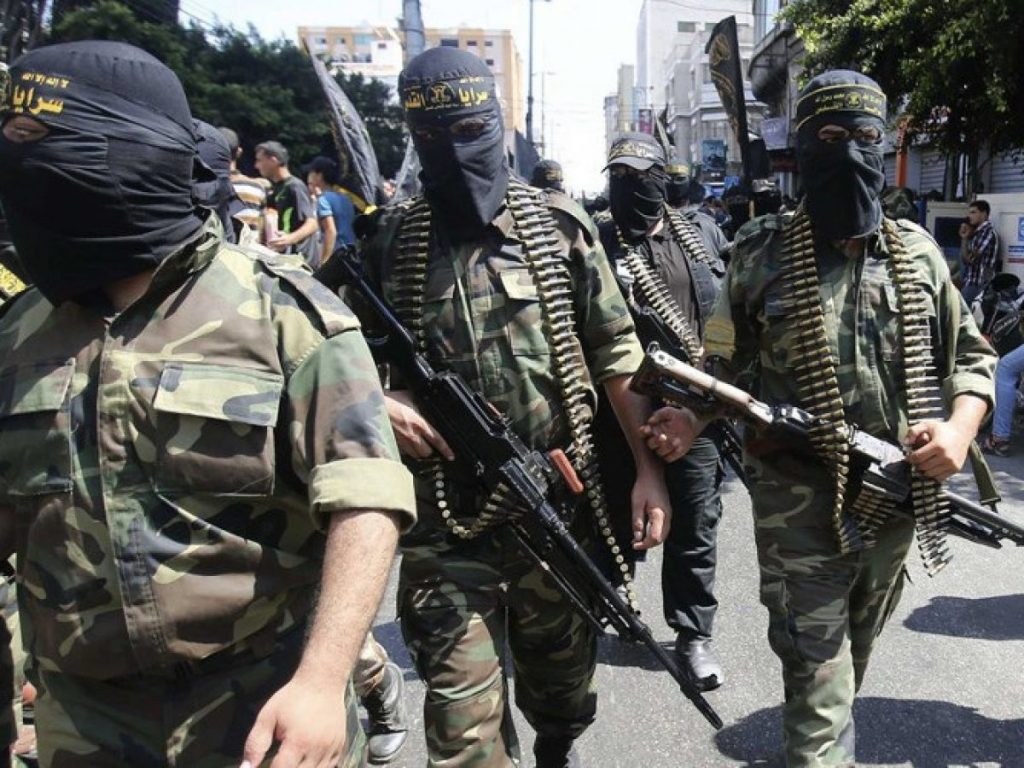Hundreds are the victims of the worst attack in the last twenty years in Russia. It all started on Friday afternoon when at least five armed men opened fire with automatic weapons during a concert by rock band Picnic at the Crocus City Hall concert venue in Krasnogorsk near Moscow.
According to a Guardian report, the Islamic State (IS) claimed responsibility for the attack, praising the “Islamic fighters” who carried it out. Many analysts and US officials have pointed to one of IS’s offshoots called the Islamic State of Khorasan Province (ISKP) as the prime suspect – although so far there is no evidence that this is the case.
How the Islamic State of Khorasan Province was created
The Islamic State of Khorasan (ISKP) is one of the offshoots of the Islamic State in Afghanistan. Taking its name from an old term for the region that included parts of Iran, Turkmenistan and Afghanistan, it emerged in eastern Afghanistan in late 2014 and quickly developed a reputation for extreme brutality.
It was created at the height of IS’s expansion in 2015, when the group based in Iraq and Syria was trying to expand by creating a network of branches through the Middle East, the Maghreb, western Asia and other parts of Africa.
These efforts have had mixed results. However, hundreds of disillusioned Taliban fighters and some from factions in Pakistan were drawn to IS extremism and resources. They formed the core of the ISKP – and the group remains affiliated with IS to this day.
Did it attack international targets?
To date, it has not “hit” international targets, and the fact that must be underlined is that the ISKP did not claim responsibility for the attack on Moscow itself. This came from IS’s central communication channels, not theirs.
Also, ISKP focused primarily on a local campaign until relatively recently. It has launched hundreds of attacks, both against civilian targets and security forces, including Western forces, in Afghanistan. Two attacks in 2020 targeted a Kabul maternity hospital and Kabul University. Others have targeted mosques and ethnic or religious minorities in Afghanistan.
The group was also responsible for a highly destructive attack on Kabul International Airport in 2021 that killed 13 US soldiers and more than 150 civilians during the chaotic US evacuation from the country. This was an international target, but it was still in Afghanistan.
Can ISKP hit international targets?
To some degree. The group has hit targets in Tajikistan and Pakistan, countries bordering Afghanistan, as well as a hotel in Afghanistan favored by Chinese citizens. Earlier this year, the US intercepted communications confirming the group had carried out a twin bombing in Iran that killed nearly 100 people – although the ISKP did not claim responsibility.
Earlier this month, the most senior US general in the Middle East said the ISKP could attack US and Western interests outside Afghanistan “in as little as six months and with little to no warning”.
Why would ISKP launch this kind of attack?
In recent decades, many extremist Islamist factions have shifted their focus from purely local targets to international ones. The reasons may vary from group to group. Sometimes when a new leader takes over, he brings a personal agenda, while other times launching long-range international attacks is seen as a way to attract new troops, win new funding from donors, or mobilize followers otherwise disenchanted with local failures.
They are also often a way to distinguish a group from its rivals – in ISKP’s case, the Taliban, who have always avoided such a strategy – and al-Qaeda, which pioneered this strategy but since 2011 has focused on local level.
It is also entirely possible that ISKP is acting on direct orders from IS leaders. Despite the collapse of the IS caliphate in Syria and Iraq, ties between the ISKP and its senior figures remain. In 2022, a UN report based on information from member states stated that the ISKP was receiving funds from the leadership “through trusted cash couriers” and there is no reason why orders should not be sent as well.
IS is apparently still looking for opportunities for such strikes. A network planning to attack a concert hall in Brussels, which was recently broken up by French and Belgian police, is said to be at least partly inspired by IS. But it also raises the possibility that a different offshoot or faction of IS, or even a semi-autonomous group inspired by IS, was responsible.

Why did ISKP or IS leaders target Russia?
Islamic State leaders, like many Islamist militants, are mindful of Russian support for Bashar al-Assad’s regime in Syria and see Moscow as part of a wider coalition of Christian or Western powers against Islam. This is a key point made by Islamic State propaganda, from Pakistan to Nigeria.
In September 2022, IS militants claimed responsibility for a deadly suicide bombing attack on the Russian embassy in Kabul, and some experts say the group has been opposing Russian President Vladimir Putin in recent years.
Michael Kugelman of the Washington-based Wilson Center said the ISKP “views Russia as complicit in activities that routinely oppress Muslims” and counts as members a number of central Asian militants with their own grievances against Moscow.
ISKP leaders may also see Russia, along with China and other countries, as important to the continued rule of the Taliban and seek to undermine them. An attack on Moscow would combine both local and global agendas.
#Massacre #Moscow #attack
2024-03-30 15:03:14







